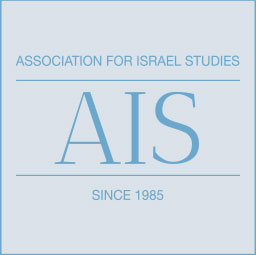Call for Editors: Israeli Studies Review
Published in English by the Association for Israel Studies, the Israel Studies Review is seeking a new editor/editorial team as the current editors, Oded Haklai and Adia Mendelson-Maoz, will be stepping down at the end of 2026. The selection committee – Rachel Harris (Chair), Oded Haklai and Natan Aridan – invites applications from qualified persons. Following examination of applications, the search committee will make a recommendation to the AIS Board of Directors for its decision. Instructions for applying are below.
OVERVIEW
General information: The ISR is published 3 times yearly by Berghahn Books and is committed to publishing rigorous, peer reviewed, academic research. The editorial staff is responsible for receiving and soliciting articles, reviewing them, identifying qualified peer reviewers, overview of the review process, and either rejecting or approving the articles.
Each issue consists of about 6 articles (maximum 9,000 words each), a Table of Contents, an Editors’ Note (generally 800-1300 words) and about 5 book reviews.
In recent years the ISR has been recognized as a leading Area Studies journal within the Q2 category on the Web of Science list and a five-year Journal Impact Factor of 0.5.
As of 2026, the ISR will be published as an Open Access journal, as part of Berghahn Books’ Subscribe to Open program. There will be no cost to authors.
Editors are ex officio members of the AIS Board and will present a yearly report to it.
Special Issues: Approximately once a year there may be a guest-edited special issue of interest to ISR readers; the guest editor should generally handle all elements of the editor’s job, but the ISR editor is responsible for overview of the process and conducting a final edit.
CRITERIA FOR EDITORS
· A scholar engaged in studying and teaching Israel Studies, broadly defined; preferably ranked as associate professor or full professor or equivalent, with a substantial record of peer-reviewed academic publications.
· Editing/editorial experience.
· Fluency in English at the level of, or close to a native speaker, defined as the ability to write, edit, and proofread publication-quality academic English – clear and consistent in grammar, style, and tone. The editorial team may be composed of one person fluent in English and others with proficiency in other criteria. However, all editors are required to be proficient in English.
· Wide knowledge of the field of Israel Studies, including both the subject matter and scholars in the field. This knowledge may be divided among the editor and an associate editor.
· Openness to a diversity of opinions and topics, including choice of articles and authors, peer reviewers, books for review and their reviewers, and so forth.
· A vision for where the ISR should go in the coming years should be included with the application.
· Organizational flexibility: Since editing the ISR requires an appreciable investment of time and energy, as well as several skill sets, we encourage various configurations of potential editors with different expertise to apply. This could include an Editor and an Associate Editor, two Co-Editors, and so forth. We recommend a separate Book Review Editor. The book review editor will identify notable new books in Israel Studies, choose qualified reviewers, and edit the reviews for publication.
· 5 years commitment from the editors and the host institution, which should be an established academic institution.
· It is desirable to include assurances that the editor(s) will have sufficient release time from other professional duties to edit the journal, as well as
secretarial/administrative support. The AIS will provide some financial assistance to cover expenses involved in the editorial process.
TO APPLY
Please send a C.V. (including professional experience and affiliations and a full list of publications), as well as a cover letter to the address below. The cover letter should address how the applicant qualifies for the job based on the criteria above as well as information about the applicants’ vision for the journal. Review of applications will begin on January 1, 2026 and will continue until the position(s) are filled. Applicants being seriously considered will have one or more Zoom interviews with the Search Committee to enable wide-ranging discussions of the work and skills required. Interested applicants are invited to contact any member of the search committee if more information is needed.
The search committee for the ISR editorial team encourages diversity and will ensure equal opportunity, treatment, and access for all candidates regardless of their sex, race, color, ethnic, or social origin.
PLEASE SEND APPLICATIONS TO THE ISR Search Committee – Harrisr@fau.edu
